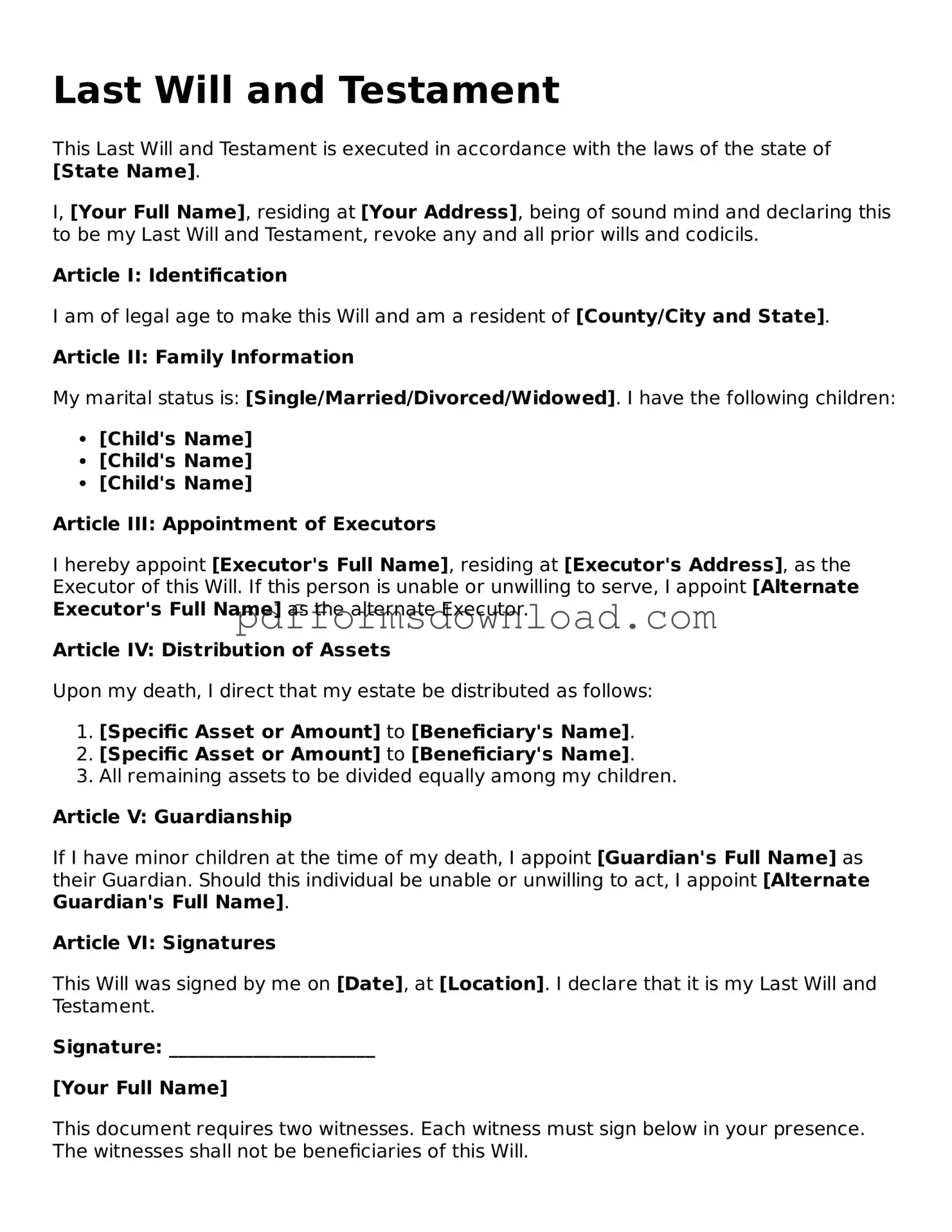What is a Last Will and Testament?
A Last Will and Testament is a legal document that outlines how a person's assets and affairs should be handled after their death. It specifies who will inherit property, who will care for any minor children, and can even include instructions for funeral arrangements. This document ensures that your wishes are respected and provides clarity to your loved ones during a difficult time.
Why do I need a Last Will and Testament?
Having a Last Will and Testament is crucial for ensuring that your wishes are carried out after you pass away. Without a will, state laws will determine how your assets are distributed, which may not align with your preferences. A will also helps prevent disputes among family members and provides a clear plan for guardianship of children.
Who can create a Last Will and Testament?
Generally, anyone over the age of 18 who is of sound mind can create a Last Will and Testament. This means you should understand what you are doing and the implications of your decisions. If you have specific wishes about your estate or dependents, it’s wise to put those in writing.
Do I need a lawyer to create a Last Will and Testament?
While it's not strictly necessary to hire a lawyer to draft your will, consulting one can be beneficial. A lawyer can help ensure that your will meets state requirements and is valid. If your estate is complex or you have specific concerns, legal advice is highly recommended.
What should I include in my Last Will and Testament?
Your will should include your personal information, a declaration that it is your last will, and details about how you want your assets distributed. You should also name an executor to manage your estate and guardians for any minor children. Additionally, consider including any specific bequests, such as personal items or family heirlooms.
Can I change my Last Will and Testament?
Yes, you can change your will at any time as long as you are of sound mind. This can be done through a codicil, which is an amendment to your existing will, or by creating a new will altogether. It’s essential to follow the legal requirements for making changes to ensure they are valid.
What happens if I die without a Last Will and Testament?
If you pass away without a will, your estate will be distributed according to your state’s intestacy laws. This means the state will determine who inherits your assets, which may not reflect your wishes. Additionally, this can lead to delays and complications in settling your estate.
How do I ensure my Last Will and Testament is valid?
To ensure your will is valid, it must be signed and witnessed according to your state’s laws. Most states require at least two witnesses who are not beneficiaries of the will. It's important to follow these rules carefully to avoid any challenges to the validity of your will after your death.

